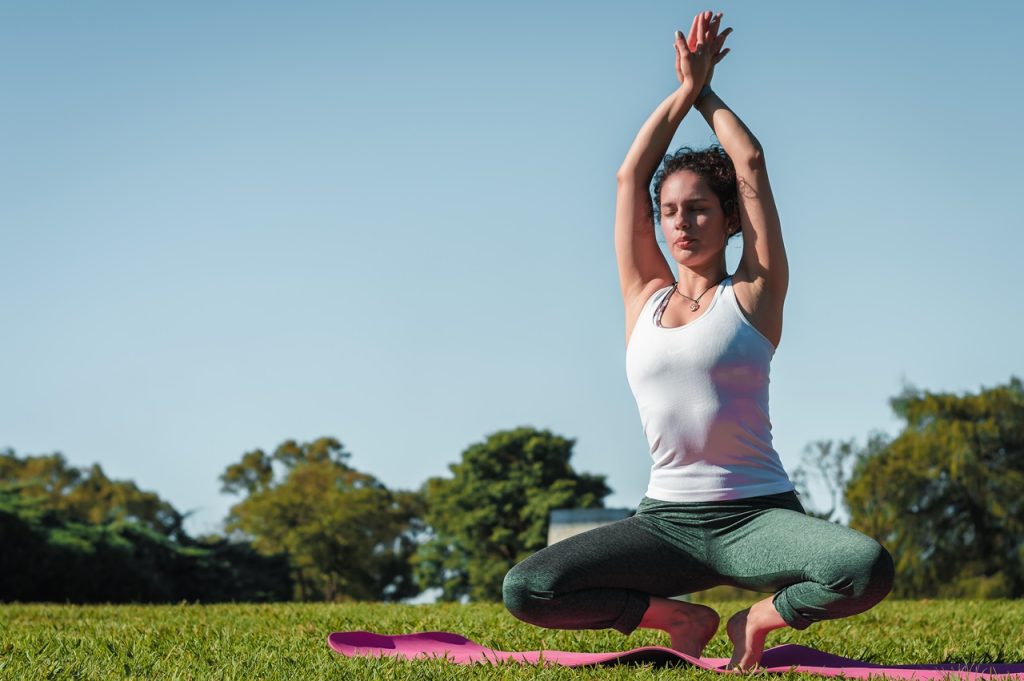Embarking on a journey to become a certified yoga instructor is both exhilarating and daunting. With myriad certification options available, choosing the one that aligns with your career objectives and personal philosophy can feel overwhelming. At Eightlimfit, renowned for our comprehensive Health & Wellness Programs in Phoenix and Scottsdale, we understand the importance of making an informed decision in this transformative journey.
This ultimate guide to yoga certifications will demystify the different types available, delve into what makes each unique, and help you decide which certification best aligns with your aspirations. Whether you’re aiming to deepen your practice or aspire to guide others in their yoga journey, understanding the nuances of each certification will set the foundation for your success in the world of yoga.
Understanding the Different Levels of Yoga Certification
The journey to becoming a yoga instructor begins with understanding the different certification levels. Typically, the certification process starts at the 200-hour level and can advance to 500 hours or more. Each level caters to a specific depth of knowledge and proficiency.
200-Hour Certification: This is the foundational certification for teaching yoga. It covers basics such as yoga philosophy, anatomy, teaching methodology, and the practice of asanas (poses). A 200-hour certification is ideal for those who wish to start teaching beginner yoga classes.
300-Hour Certification: After completing the 200-hour course, an additional 300 hours of advanced training can lead to a 500-hour certification. This training dives deeper into yoga’s various styles and theories, enabling instructors to teach more advanced classes and offer specialized workshops.
500-Hour Certification: A comprehensive certification that combines the 200-hour and 300-hour courses, preparing instructors to master and teach advanced techniques and possibly even train other aspiring instructors.
Specialty Certifications: Beyond the standard hours, there are certifications for specialties like prenatal yoga, children’s yoga, and therapeutic yoga. These programs focus on the specific needs of different groups, providing the skills necessary to tailor yoga practices to meet those needs.
Choosing the Right Style of Yoga to Certify In
Yoga has many styles, each with a unique focus and philosophy. When selecting a certification, consider which style resonates most with your personal practice and the type of yoga you wish to teach. Here are some popular styles:
Hatha Yoga: Known for its slow pace and static poses, Hatha is great for beginners. It emphasizes physical postures and breathing techniques, fostering a deeper understanding of the body’s alignment.
Vinyasa Yoga: Dynamic and flow-based, Vinyasa is all about movement synchronized with breath. It’s suitable for those who enjoy a more physically challenging practice.
Ashtanga Yoga: Structured and vigorous, Ashtanga follows a specific sequence of poses performed in the same order. It’s ideal for individuals who appreciate routine and discipline in their practice.
Iyengar Yoga: This style focuses on precision and alignment, with extensive use of props like blocks and straps. It’s perfect for those who want to delve deep into the anatomical aspects of yoga.
Yin Yoga: A meditative approach to yoga that targets deep connective tissues. Yin involves holding poses for extended periods, providing an introspective practice focusing on flexibility.
Understanding these styles will help you choose the right path in your yoga teaching journey based on your interests and the needs of your future students.
Accreditation Bodies for Yoga Certification
Choosing a yoga certification program that is accredited by a recognized organization is crucial. Accreditation ensures the program meets high educational standards. Here are a few key organizations:
Yoga Alliance: Perhaps the most well-known yoga certification body globally, Yoga Alliance offers accreditation for 200-hour and 500-hour teacher training programs. They ensure that the curriculum meets their standards, which focus on teaching methodology, techniques, and yoga philosophy.
British Wheel of Yoga: This is the largest yoga membership organization in the UK. They offer accreditation for teacher training programs that meet their rigorous standards, ensuring high-quality education.
International Yoga Federation: It is a non-profit global organization that provides international recognition to yoga schools and teachers.
Selecting an accredited program will not only enhance your teaching qualifications but also provide your future students with confidence in your training.
Evaluating Yoga Teacher Training Programs
When deciding on a yoga teacher training program, consider the following factors:
Curriculum: Ensure it covers all necessary areas, including anatomy, physiology, philosophy, and specific training for the style of yoga you’re interested in.
Instructors: Look for programs taught by experienced and respected instructors. Their guidance is invaluable as you delve into complex aspects of yoga.
Class Size: Smaller classes allow for more personalized attention and direct feedback, which can enhance your learning experience.
Flexibility: Depending on your personal commitments, you might prefer a program that offers flexibility, such as weekend courses or intensive retreats.
Location: Consider whether you want to train locally or use the opportunity to travel abroad. Each setting offers a unique atmosphere and can enrich the experience differently.
Cost: Prices can vary significantly. Make sure you understand what is included in the fee, such as materials and any required retreats or workshops.
Continuing Education and Lifelong Learning
Yoga teaching is a continual learning process. After initial certification, ongoing education is essential for developing your skills, staying updated with new yoga practices, and maintaining certification if your accreditor requires it.
Many organizations offer advanced workshops, online courses, and special seminars to help deepen your knowledge and keep your teaching methods fresh and engaging. Engaging in lifelong learning not only benefits you as a teacher but also enhances the quality of instruction for your students, making it a crucial aspect of your career as a yoga instructor.
By navigating these elements thoughtfully, you can select a yoga certification that not only fulfills your personal and professional goals but also positions you as a competent, compassionate, and compelling yoga instructor.
Start Your Journey to Becoming a Certified Yoga Instructor with Eightlimfit
Embarking on the path to becoming a certified yoga instructor is a significant step towards deepening your practice and sharing your passion for yoga with others. By understanding the various certification levels, styles, and accrediting bodies, you position yourself to make informed decisions that align with your career aspirations and personal values.
Eager to start your journey? Join Eightlimfit’s esteemed Yoga Teacher Training programs in Phoenix and Scottsdale, which are renowned for their comprehensive curriculum and expert instructors. Whether you are just beginning or looking to advance your teaching skills, Eightlimfit offers personal training in Scottsdale tailored to every stage of your yoga career.
Visit us at Eightlimfit today and take the first step toward turning your passion for yoga into a fulfilling profession. Let’s embrace the journey of growth and learning together!

